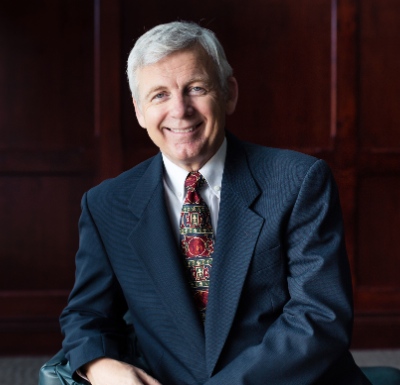Trinity Western University (TWU) received not one but two pieces of good news this week, in its quest to develop a School of Law at the Langley campus.
On Monday, December 16, the Federation of Law Societies of Canada (FLSC) announced preliminary approval for the school, which the university hopes to bring on stream in the fall of 2016, with an opening enrolment of 60 students.
Then, two days later, British Columbia Advanced Education Minister Amrik Virk announced his ministry’s consent for TWU to proceed with the program.
“I have now had an opportunity to consider the [ministry’s] Degree Quality Assessment Board recommendation and findings, as well as the [FLSC] reports,” Virk noted.
He said the board reviewed Trinity Western University’s proposed law degree and found that it met the degree program quality assessment criteria for private and out-of-province public institutions.
“Further, the review by the [FLSC] confirmed that graduates of the proposed law program could meet the national standards to practise law,” he added.
For its part, the FLSC explained that full approval comes only after the school has some graduates. The preliminary step was recommended by the federation’s Common Law Program Approval Committee and announced on Monday.
University president Bob Kuhn, himself a lawyer who successfully defended TWU before the Supreme Court of Canada in 2001 against attempts by the BC College of Teachers to block a teacher education program, said the FLSC action “allows us to move on.”
Trinity’s law school proposal has garnered some controversy since it was announced earlier this year, especially among critics of its community covenant, which speaks, among other things, to the value of traditional marriage. As Canada’s largest evangelical Christian university, the school has been at the forefront of developments in Christian-based liberal arts education
The FLSC release noted that the preliminary approval comes with some concerns to be monitored, including the charge by some critics that TWU’s covenant is “discriminatory” against gay, lesbian and transgendered people.
But it also noted that many of the issues raised by critics – including outspoken Toronto lawyer Clayton Ruby, who has led the charge against the law school proposal – fall outside the approval committee’s mandate. That mandate is limited to seeing that the school meets the National Requirement developed by the federation and Canada’s provincial law societies.
The FLSC has struck a special advisory committee to deal with concerns outside of the society’s mandate. One task it may take on is the developing of a non-discriminatory clause in its requirements, similar to that applied for law schools – including institutions with a religious base – in the United States.
Indeed, in a July 25 editorial, the Globe and Mail, the prominent national newspaper, advocated for such a clause.
For his part, TWU president Kuhn allowed that “While the university does have strong religious roots, it is committed to fully and comprehensively teaching all aspects of law, including human rights, ethics and professionalism.”
“We recognize,” said Kuhn, “that there has been considerable debate with respect to the fact that TWU is a faith-based university. Now that the Federation has approved the program, we can move on from that debate and build an excellent law school to serve the Canadian public.
“We are thrilled to serve as leaders in Canadian context. We welcome the chance to prove that Christian universities improve society – they are not to be feared but followed.”
Kuhn suggested it is too early to tell whether a FLSC initiated non-discriminatory clause will make much difference to the process, but indicated that federal and provincial legislation already in place make such a clause virtually redundant.
The president also spoke of the significance of mediation law and alternate dispute resolution (ADR) tools in the curriculum of the proposed law school.
That aspect “has not been picked up” by critics and the media in the way that more controversial issues related to the law school have, he suggested. Some law schools in public universities “touch on it [ADR], but not to the same degree we hope to. It will form a large part of the program offerings.”
ADR is not particularly appreciated by some law practitioners, Kuhn suggested, adding, though, that experience shows 75 percent of cases going to mediation or ADR are settled at the time or soon after.
In explaining the preliminary approval decision, FLSC president Marie-Claude Belanger-Richard noted: “the Federation followed a fair, rigorous and thoughtful process,” adding that “adherence by lawyers to principles of non-discrimination in the exercise of their professional duties is an essential part of what defines a member of the profession.”
The FLSC advisory committee suggested that there is “no public interest reason to exclude future graduates of the [TWU] program from law society bar admission programs, as long as the program meets the National Requirement.”
Kuhn explained that Advanced Education’s input relates to course and program design, while the FLSC deals with ensuring that graduates are profession-ready.
And the FLSC will monitor what it describes as the “concerns” in future reviews. Those concerns include “TWU’s teaching of legal ethics and public law.”
The TWU statement with respect to this week’s two approvals noted: “By delivering a legal education within a framework of servant leadership, the TWU law program will encourage its graduates to be lawyers with a focus on community service. The school will incorporate leadership and character development into all aspects of its programming. Students will be encouraged to see the profession of law as a high calling of service, including volunteerism with local, national and global NGOs that serve under-developed nations, and the vulnerable whenever they are found.”
And Earl Phillips, a Vancouver lawyer and co-chair of the TWU law school advisory council, said, “a school of law at TWU will help meet the growing need for practical and affordable legal services in Canada. I also am confident that its graduates will benefit from a culture of ethics, professionalism and service informed by the ideals of the Christian faith.”


